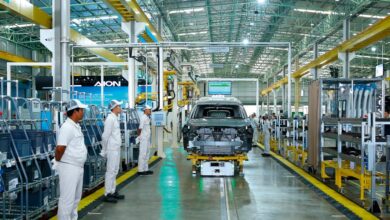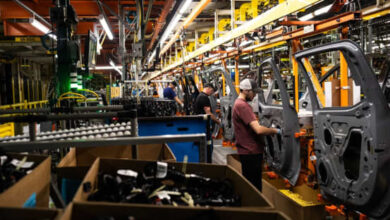Space engine startup in talks for new capital after funding shortfall
A British tech start-up that promised to build the world’s first spaceplane is in final talks to secure new funding after two backers reduced the value of their investment.
Reaction Engines, founded in 1989, is in advanced talks with the UAE-backed Strategic Development Fund (SDF), one of the company’s current shareholders, for a new capital injection, according to two people familiar with the matter. SDF has led a £40m funding round in January last year.
The British startup is also backed by a number of major aerospace corporations, including BAE Systems and Rolls-Royce, as well as financial investors Artemis and Schroders.
Reaction has previously raised more than £150m and increased its trading revenue by more than 400 per cent last year. However, the company warned earlier this year that it would need to raise more funding. This week it lined up accountancy firm PwC to act as administrator if funding talks collapsed.
Sky News first reported that PwC had been put on standby. The accounting firm, which has yet to be formally appointed, declined to comment on Saturday. Reaction also declined to comment.
One of the people familiar with the talks said other existing investors are monitoring the situation.
Artemis and Schroders both announced last week that they had made significant changes written the value of their stake in Reaction. Artemis has cut the value of its 2.3 per cent holding by 75 per cent. Artemis Alpha Trust, the London-based fund manager’s holdings, now values the stake at £1.2m, down from £6.4m in April.
In recent years, Reaction has focused on developing a hybrid jet and rocket engine, called the Sabre. This innovative engine was originally planned to power the Skylon, a spaceplane also designed by Reaction.
Key to the development of Sabre is Reaction’s groundbreaking pre-cooling technology, which prevents the engine from overheating and could lead to supersonic spaceplanes. The company is part of British-led military project with the aim of making supersonic flight a reality. At hypersonic speeds, the heat generated inside a conventional gas turbine would begin to melt the components unless they were cooled in some way.
The company has recently turned its attention to developing aerospace and near-term commercial applications for its pre-cooling technology. It has signed an agreement with US industrial giant Honeywell to collaborate on thermal management technologies to help reduce aircraft emissions.
Reaction is chaired by Philip Dunne, a former British defence secretary. Reaction is run by Mark Thomas, who previously worked at Rolls-Royce.




